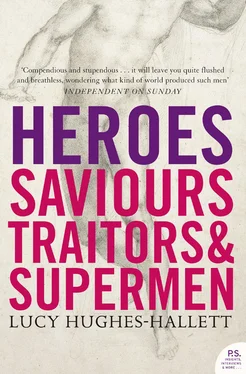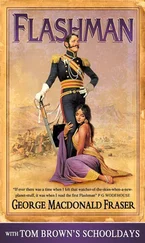Under Cato’s administration the treasury became an instrument of justice. There were still at large several men known to have been used as assassins by Sulla at the time of his murderous proscriptions. ‘ All men hated themas accursed and polluted wretches,’ says Plutarch, ‘but no one had the courage to punish them.’ No one, that is, except Cato. He demanded that they repay the large sums with which they had been rewarded for their killings, and publicly denounced them. Shortly thereafter they finally came to trial.
Cato possessed, writes Plutarch, ‘ that form of goodnesswhich consists in rigid justice that will not bend to clemency or favour’. Eccentric as his straight dealing was perceived to be, it won him a degree of respect quite disproportionate to his actual achievements. His truth-telling became a by-word. ‘When speaking of matters that were strange and incredible, people would say, as though using a proverb “This is notto be believed even though Cato says it”.’ Any defendant who attempted to have him removed from a jury was immediately assumed to be guilty. His evident probity gave him a degree of power out of all proportion to his official rank. It was said that he had given the relatively lowly office of quaestor the dignity normally attached to that of consul.
He had become a notable player in the political game. That game, as played in the last years of the Roman Republic, was a rough one. Rome had no police force. Prominent people never went out alone. In good times they were accompanied wherever they went by an entourage of clients and servants. In bad times they had their own trains of guards-cum-enforcers, troops of armed slaves and gladiators, in some cases so numerous as to amount to private armies. Political dispute developed, rapidly and often, into physical conflict. To read the ancient historians’ account of the period is to be repeatedly astonished by the contrast between the grandeur and efficacy of Rome’s rule over its expanding empire and the rowdiness and violence at its very heart. The Forum was not only parliament, law court, sports arena, theatre and place of worship. It was also, frequently, a battlefield. The temples that surrounded it, which were used on occasion as debating chambers or polling stations, could and frequently did serve as fortresses occupied and defended by fighting men. During his career Cato was to be spat upon, stripped of his toga, pelted with dung, dragged from the rostrum (the platform in the Forum from which orators addressed the people), beaten up and hauled off to prison. He escaped with his life, but he was present on occasions when others did not. The making of a political speech, in his lifetime, was an act that called for considerable courage.
His quaestorship over, he was an assiduous senator, always the first to arrive in the morning at the Senate House and the last to leave, attending every session to ensure no corrupt measure could be debated without his being there to oppose it. But in 65 BC he resolved to take a reading holiday. He set off for his country estate, accompanied by a group of his favourite philosophers and several asses loaded down with books. The projected idyll – quiet reading and high-minded discussion in a bucolic setting – was aborted. On the road Cato met Metellus Nepos, brother-in-law and loyal supporter of Pompey. Learning that Nepos was on his way to Rome to stand for election as a tribune of the people, Cato decided that it was his duty to return forthwith and oppose him.
It was an edgy time in Rome. Two years previously, during Cato’s quaestorship, a group of influential men had plotted a coup d’état. The plot was aborted, but those suspected of instigating it were all still at liberty, all highly visible on the political scene. The ancient historians differ as to who they were. Sallust identifies the ringleader as Catiline, a charismatic, dangerous man whom Cicero credited with a phenomenal gift for corrupting others and a corresponding one for ‘ stimulating his associatesinto vigorous activity’. Catiline was a glamorous figure: nineteen hundred years later Charles Baudelaire was to identify him, along with Alcibiades and Julius Caesar, as being one of the first and most brilliant of the dandies. Scandals clung to his name. He was said to have seduced a vestal virgin, even to have murdered his own stepson to please a mistress. His sulphurous reputation had not prevented him achieving the rank of praetor, but his first attempt to win the consulship was thwarted when he was accused of extortion. Sallust maintains that, prevented from attaining power by legitimate means, Catiline plotted to assassinate the successful candidates and make himself consul by force. Suetonius, on the other hand, asserts that the chief conspirators were Crassus and Caesar.
Crassus was a man some seventeen years older than Cato who had grown fabulously rich by profiting from others’ misfortunes. He had laid the foundations of his wealth at the time of Sulla’s proscriptions, buying up the confiscated property of murdered men at rock-bottom prices. He had multiplied it by acquiring burnt-out houses for next to nothing (in Rome, a cramped and largely wooden city, fires were frequent and widespread) and rebuilding them with his workforce of hundreds of specially trained slaves until he was said to own most of Rome. A genial host, a generous dispenser of loans and a shrewd patron of the potentially useful, he ensured that his money bought him immense influence. No one, he is reported to have said, could call himself rich until he was able to support an army on his income. He was one who could.
Julius Caesar was one of Crassus’ many debtors. Five years older than Cato and politically and temperamentally his opposite, he was already noted for his military successes, his sexual promiscuity and his fabulous munificence – all of which endeared him to the populace. As aedile in 65 BC, the year of the alleged conspiracy, he staged at his own expense a series of wild-beast hunts and games of unprecedented magnificence, filling the Forum with temporary colonnades and covering the Capitoline Hill with sideshows. In Alcibiades’ lifetime, Plato had warned ‘ any politician who seeksto please the people excessively … is doing so only in order to establish himself as a tyrant’. Whether or not he was actually plotting sedition, Caesar was already one of the handful of men who threatened to destabilize the Roman state – as Alcibiades had once undermined the stability of Athens – simply by being too glittering, too popular, too great.
But though Catiline, Crassus and Caesar were all present in Rome when Cato returned in 63 BC to stand for election, it was Pompey whom the guardians of republican principles were watching most apprehensively. It was because Metellus Nepos was Pompey’s man that Cato had felt it so imperative to oppose him. Pompey had treated Cato graciously in Ephesus, but Cato was not the man to be won over by a display of good manners, however flattering. Cato was a legalist. His political philosophy was based on the premise that only by a strict and absolute adherence to the letter of the law could the Republic be preserved. Pompey’s entire career had been conducted in the law’s defiance.
When only twenty-three he had raised an army of his own and appointed himself its commander. When he returned triumphant from Spain in 71 BC he had insisted on being allowed to stand for consul – the highest office in the state – despite the fact that he was ten years too young and had held no previous elected office, and he had backed up his demand by bringing his legions menacingly close to the city. Sulla had drastically reduced the powers of the tribunes and enhanced those of the Senate. As consul in 70 BC, Pompey had reversed the balance. In subsequent years he had seen to it that a fair number of the tribunes were his supporters and he worked through them, as Caesar was to do later, to bypass the increasingly unhappy Senate and appeal directly to the electorate for consent to the expansion of his privileges and power.
Читать дальше












